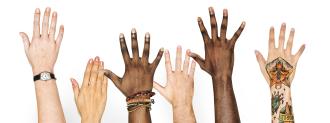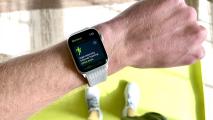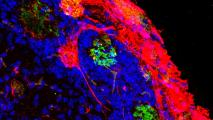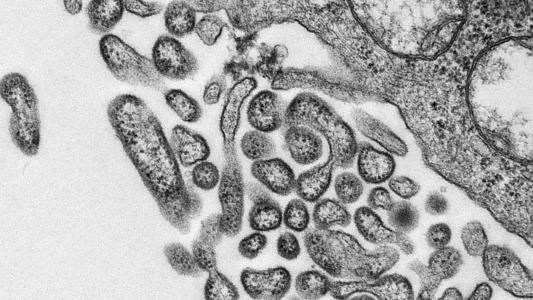When we think about human evolution, we’re usually pondering changes that happened over long periods of time, like the development of the fully opposable thumb or the transition to walking upright.
But scientists in Australia have now spotted evidence of a smaller, faster “microevolution” — and this change is happening in humans right now.
Microevolution in Action
The microevolution has to do with an arm artery babies develop in the womb to transport blood to their forearms and hands. By the time they’re born, this artery will have been replaced by two others — usually.
However, some people are born with all three arteries, and the rate at which that’s happening is increasing dramatically, according to the Australian scientists.
After analyzing anatomical literature and dissecting the upper arms of donated cadavers, they determined that a person born in the mid-1880s had just a 10% chance of having the extra arm artery, but that someone born in the late-1900s had a 30% chance.
“This increase could have resulted from mutations of genes involved in median artery development or health problems in mothers during pregnancy, or both actually,” Teghan Lucas, a researcher from Flinders University, said in a press release.
If the trend continues, they predict the majority of people born in 2100 will have undergone this microevolution — and be better off because of it.
Researcher Maciej Henneberg said the extra arm artery not only increases blood flow to the hand, but could also be used as a replacement if an artery elsewhere in the body sustains damage — it’s like a spare tire you keep in your trunk in case you get a flat, but for your circulatory system.
More Than an Extra Arm Artery
The extra arm artery isn’t the only microevolution currently taking place in humans.
The scientists report that more and more people are being born with a small gap in their spine bones (spina bifida occulta), an extra bone in their knees (the fabella), or no wisdom teeth.
Many people with spina bifida occulta never even know they have it, while the fabella can actually cause health problems. As for having no wisdom teeth, the benefit (as yours truly can attest) is never having to have the pesky things removed via surgery.
Keeping an eye out for these microevolutions is essential to human healthcare. As our bodies evolve, doctors need to be prepared to adapt to the changes and their potential impact on patients.
We’d love to hear from you! If you have a comment about this article or if you have a tip for a future Freethink story, please email us at [email protected].






